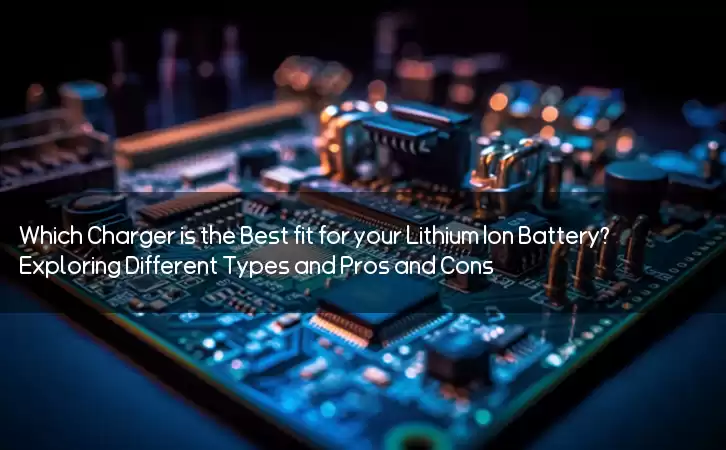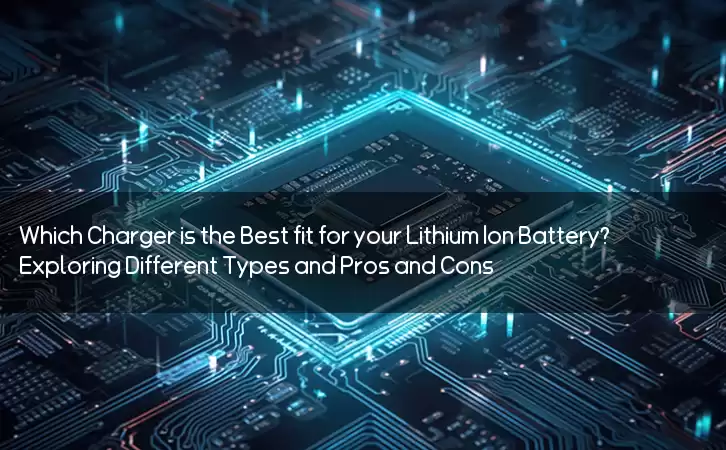Information Center
Which Charger is the Best fit for your Lithium Ion Battery? Exploring Different Types and Pros and Cons
Published:2023-07-18 10:34:20 Author:Green WCND Views:56Lithium ion batteries have become an integral part of our lives due to their high energy density, low self-discharge, and long cycle life. These batteries are used in a variety of electronic devices, including smartphones, laptops, tablets, cameras, and electric vehicles. However, one of the common questions that arise among users is what kind of chargers are compatible with lithium ion batteries. In this article, we will explore the different types of chargers that work with lithium ion batteries and their pros and cons.

Firstly, let’s take a look at the basic requirements for charging a lithium ion battery. Lithium ion batteries require a constant current and constant voltage for optimal charging. The charging current should never exceed the maximum charging rate specified by the manufacturer, and the charging voltage should not exceed the battery’s maximum voltage limit.

The most common type of charger used for lithium ion batteries is the USB charger. USB chargers are inexpensive, readily available, and can be used to charge a wide range of devices, including smartphones, tablets, and cameras. USB chargers typically provide a 5-volt output and a current that ranges from 0.5 amps to 2.4 amps depending on the charger’s capacity. While USB chargers are convenient, they may not provide the fastest charging speeds and are not recommended for larger lithium ion batteries.
Another popular charger for lithium ion batteries is the wall charger. Wall chargers are available in various configurations, including single-port, multi-port, and USB-C. Wall chargers typically provide higher power output than USB chargers and can charge multiple devices simultaneously. The charging speed of a wall charger depends on the output current and voltage. Wall chargers can be used to charge larger lithium ion batteries such as those used in electric vehicles, but they may not be as portable as USB chargers.
Another type of charger that is becoming increasingly popular is wireless charging. Wireless charging works by using an electromagnetic field to transfer energy between the charger and the device’s receiver coil. Wireless charging is convenient and eliminates the need for messy cords and cables, but it may not be the fastest charging method, and the distance between the charger and the device can affect the charging speed.
Finally, there are also specialty chargers designed specifically for certain types of lithium ion batteries, such as those used in power tools, drones, and electric bikes. These chargers typically provide higher power output and may have additional safety features to prevent overcharging and overheating.
In conclusion, when it comes to charging lithium ion batteries, there are several types of chargers to choose from, each with its own set of advantages and disadvantages. USB chargers are convenient, but may not provide the fastest charging speeds, while wall chargers offer higher power output but may be less portable. Wireless charging is convenient and eliminates cords and cables, but may not be the fastest charging method. Specialty chargers are designed specifically for certain types of lithium ion batteries and provide additional safety features. Ultimately, the type of charger that works best with your lithium ion battery will depend on your specific needs and preferences.
Power Adapter Design and Customization Guide for Portable Electric KettlesI. Common Design Types for Portable Electric Kettle Power AdaptersPortable electric ke···
I. Common Design Types of Power Adapters External Independent Type (Most Common) Design: A standalone adapter (e.g., "black brick") connected to the p···
Handheld Vacuum Cleaner Power Adapter Selection GuideIntroductionHandheld vacuum cleaners have become a mainstream tool for household cleaning due to their port···
Drill Power Adapter Selection Guide.drill-container { font-family: Arial, sans-serif; line-height: 1.6; max-width: 800px; margin: 0 auto; padding: 20px; } .dril···





